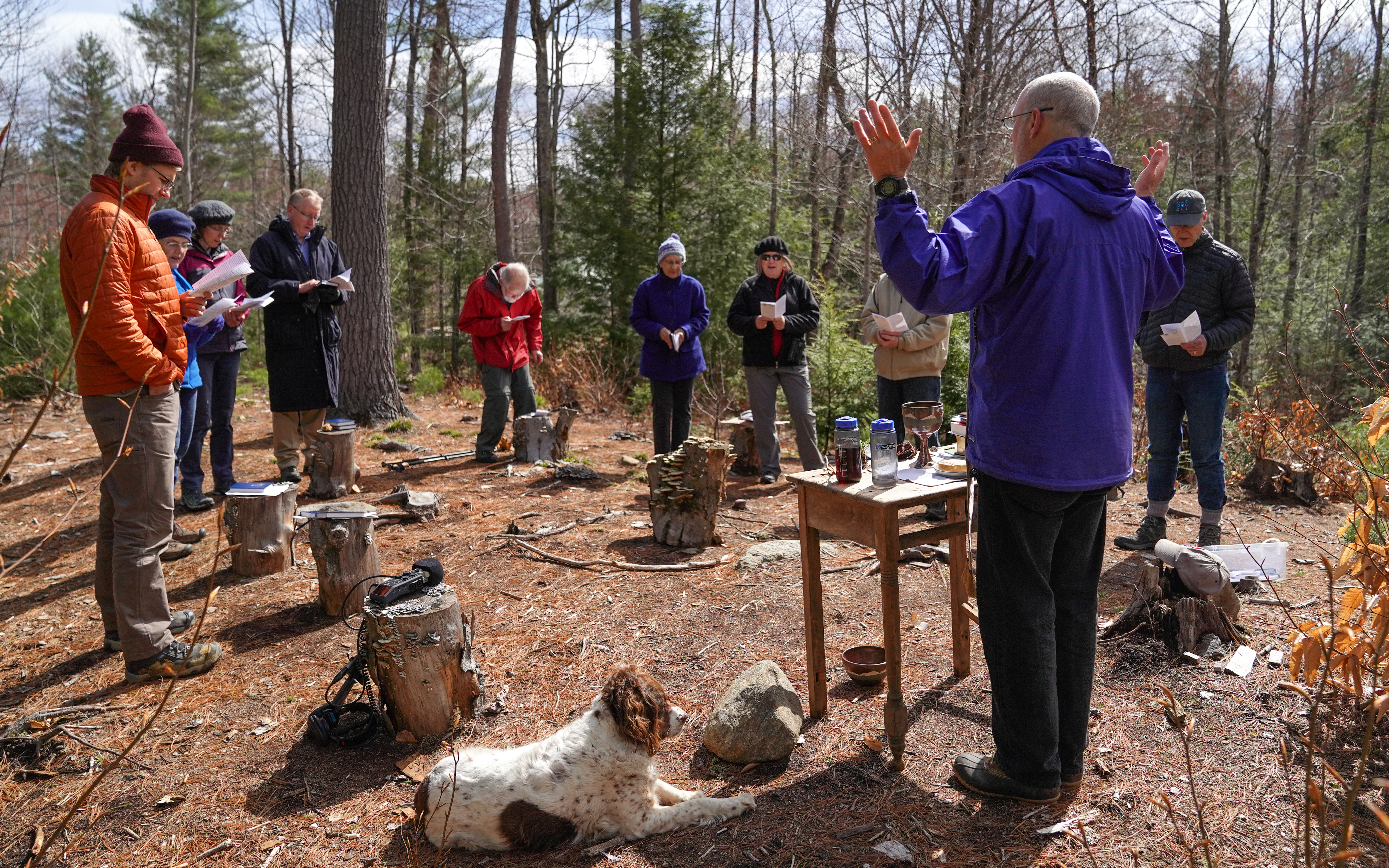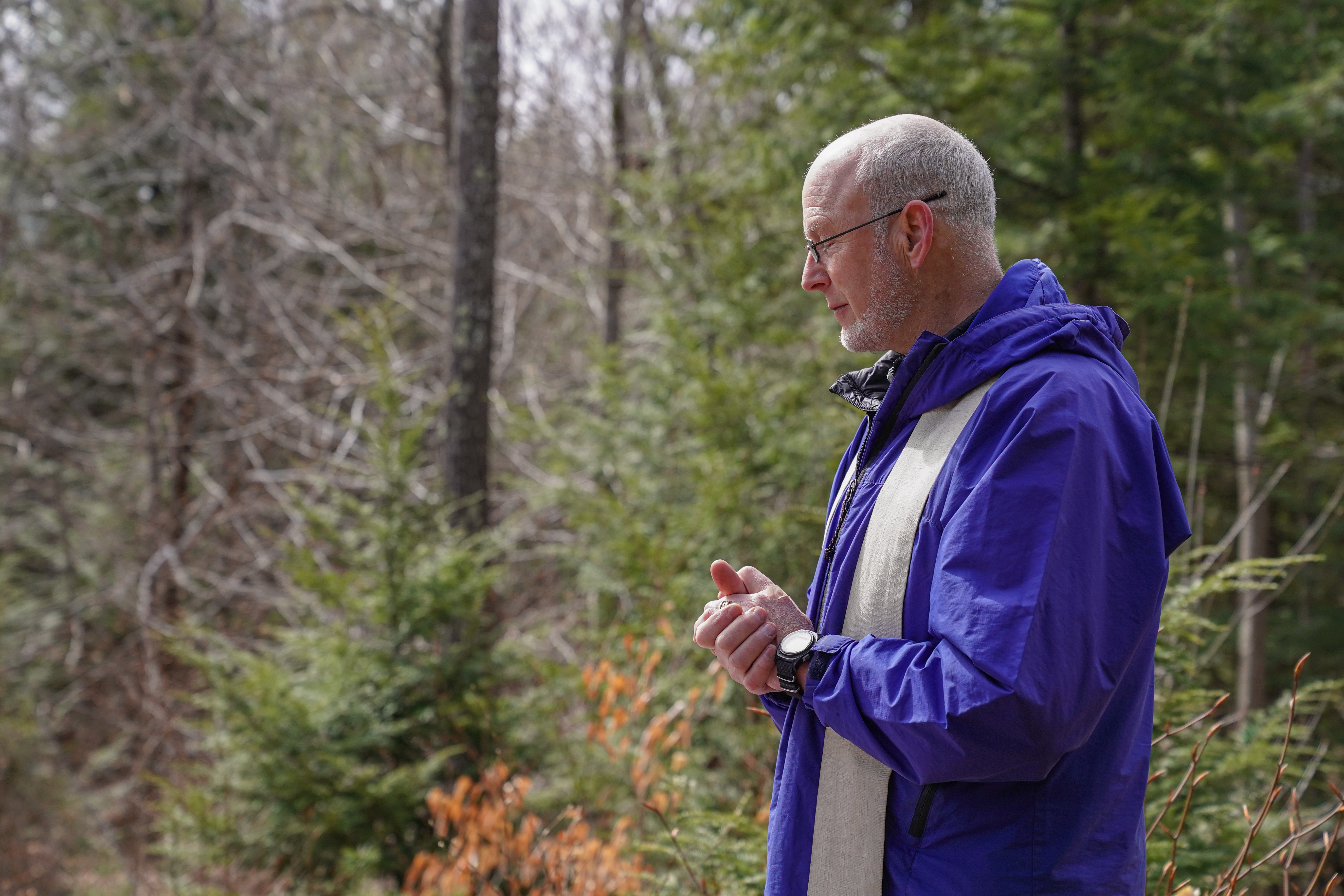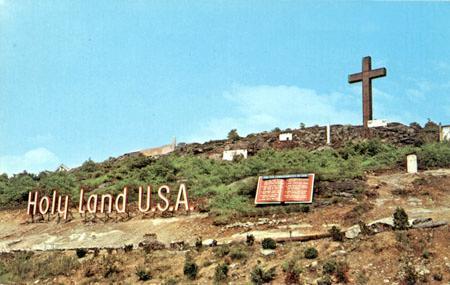Episode 154: New England’s Unusual Holy Sites; Harvard’s Voices From History
This week on NEXT:
How a dam removal in Maine changed the way rivers are restored.
Plus, we’ll visit a unique library at Harvard University, and learn about the fascinating history of an interstate school district in our region.
Finally, we’ll visit two unusual holy sites.
It’s NEXT.
How the Removal of a Dam in Maine Shaped River Restoration
Twenty years ago, on July 1, 1999, the Edwards Dam, which stretched across the Kennebec River in August, Maine, was removed.
Since then, the river has changed dramatically, into a success story that is touted around the world.
Here to discuss the Edwards Dam removal is Pete Didisheim, the Senior Director of Advocacy for the Natural Resources Council of Maine.
Restoring Water Currents in a Marsh
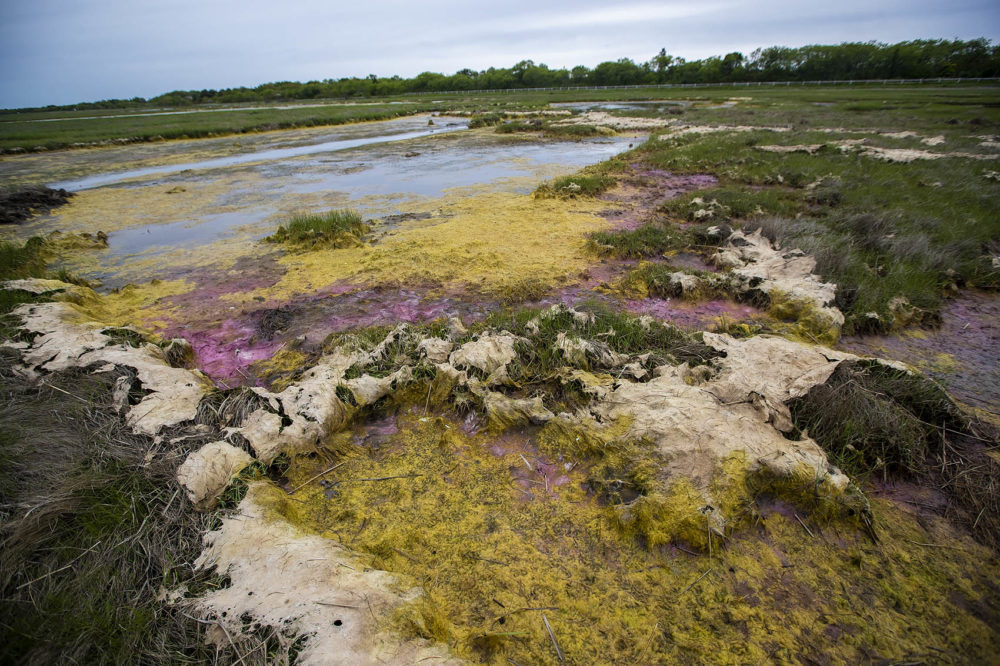
Colorful algae forms in the stagnant water behind embankments. The embankments will be removed in order allow the water to ebb and flow freely in and out of the marshlands. Photo by Jesse Costa for WBUR
You know that “oops” feeling when you try to do something good, but it backfires? Scientists at the Parker River Wildlife Refuge on Plum Island sure do. About a decade ago, they dammed up drainage ditches to restore natural water currents in the marsh. But the project had some unintended consequences.
And now, as WBUR’s Miriam Wasser reports, protecting the marsh from rising sea levels means reversing that work.
PFAS Hits the Campaign Trail
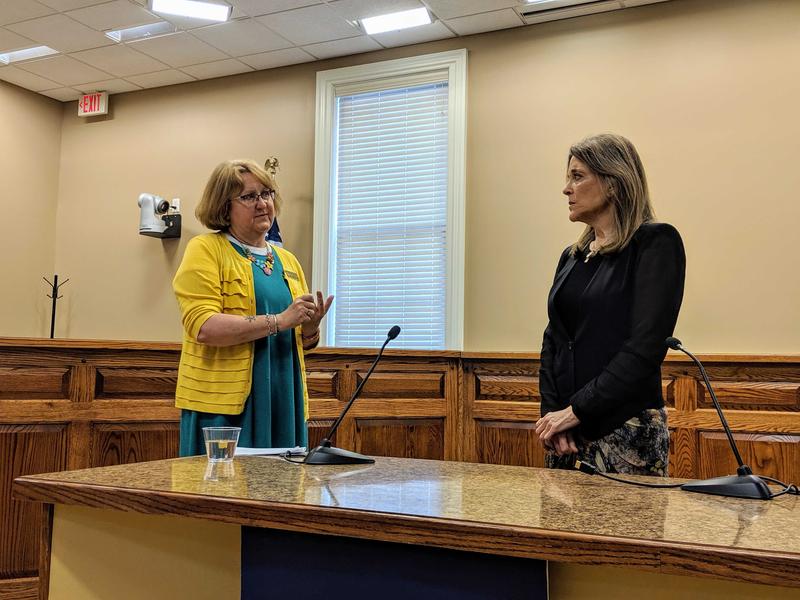
New Hampshire state Rep. Wendy Thomas, left, talks with Democratic presidential candidate Marrianne Williamson about PFAS chemicals in Merrimack. Photo by Annie Ropeik for NHPR
New Hampshire is at the forefront of a growing national debate over PFAS chemical contamination in drinking water. And many of the Democrats campaigning to win the state’s first-in-the-nation presidential primary are taking notice.
They’re using the issue to connect with a highly engaged block of Granite State voters and, as New Hampshire Public Radio’s Annie Ropeik reports, local PFAS activists are welcoming the attention.
Harvard’s Vocarium Showcases Voices from History
Recording and listening back to the human voice is, in 2019, not seen as especially thrilling or groundbreaking. You’ve probably done it at least a few times this week on your smartphone.
But imagine the marvel this must have been in the first half of the twentieth century. It was the first time you could hear music that wasn’t played right in front of you…the first time you could hear poets and authors and politicians without seeing them face to face.
Producer Noam Osband takes us to a place on Harvard’s campus that you’ve probably never heard of, where those sounds were painstakingly preserved. Here’s his story.
The History of the Dresden School District
Inter-state cooperation is something that makes sense in New England, where our states are tightly packed together, and it’s not unusual to wake up in one state, to go work in another.
But before the early 1960s, there had never been an interstate school district…in New England or anywhere in the US. That is, until the Dresden school district in Hanover New Hampshire and Norwich Vermont was formed.
This long-time collaboration also has an interesting political origin, and here to talk with us about it is Bill Hammond and David Bradley. Bill Hammond taught for almost 30 years at Hanover High School, and was the principal at Marion Cross Elementary School in Norwich, Vermont.
David Bradley is a lawyer at Stebbins Bradley law firm. He was on the Dresden and Hanover School District School Boards in the late 1960s.
Church of the Woods
There’s a church on a dirt road in Canterbury, New Hampshire, without walls, where the Reverend Stephen Blackmer combines Christian practice with environmental stewardship.
Producer James Napoli recently visited a service.
Holy Land USA
A 56-foot cross looms on a hilltop above the city of Waterbury, Connecticut. It once welcomed visitors to a popular religious tourist attraction. It was abandoned and decrepit for decades. There are still people who want to rescue Holy Land, USA.
WSHU’s Davis Dunavin reports as part of the podcast Off the Path from New York to Boston.
New England Music Featured on NEXT
About NEXT
NEXT is produced at Connecticut Public Radio
Host: John Dankosky
Producer: Lily Tyson
Digital Producer: Carlos Mejia
Senior Director: Catie Talarski
Contributors to this episode: Miriam Wasser, Annie Ropeik, Noam Osband, James Napoli, Davis Dunavin
Music: Todd Merrell, “New England” by Goodnight Blue Moon, “Odysseus” by Emma June, “Thanks for Playing” by Kerrin Connolly
New to NEXT? You can find every episode or one you missed within our archives.
We need your feedback! Send critiques, suggestions, questions, and ideas to next@ctpublic.org. Help us spread the word! If you like what you hear, rate and review us on iTunes.

